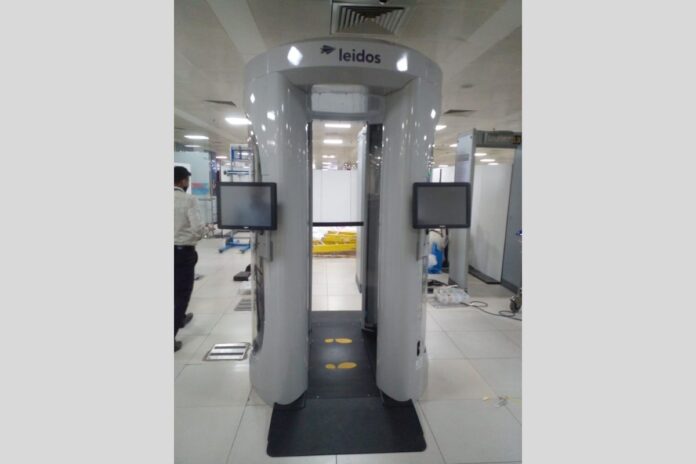A full-body scanner is a device that detects objects, without making physical contact or breaching the privacy of passengers. Unlike metal detectors, full-body scanners can detect non-metal objects, hard to detect with conventional door-frame metal detectors (DFMD).
NEW DELHI: Delhi International Airport Limited (DIAL), a GMR Infrastructure Limited-led consortium, has started the trials of the full-body scanner Since Wednesday, June 30 at Terminal 2 of the Indira Gandhi International Airport.
This is in line with the directive of the Bureau of Civil Aviation Security (BCAS).
A full-body scanner is a device that detects objects, without making physical contact or breaching the privacy of passengers. Unlike metal detectors, full-body scanners can detect non-metal objects, which are hard to detect with the conventional door frame metal detector (DFMD).
DIAL has installed a full-body scanner at the security check area for trials.
The trials for a period of 45 to 60 days, would be conducted on a real-time basis i.e. passengers would have to pass through it during their security check before moving to the security hold area.
During this period, feedback of all the stakeholders – the Bureau of Civil Aviation Security (BCAS), the Central Industrial Security Force (CISF), the airport operator DIAL, and passengers -would be taken, examined, and evaluated.
Upon completion of trials, the findings would be shared with regulatory bodies for evaluation and the further course of action would be decided accordingly.
The new advanced scanner installed at Delhi Airport is a Millimeter-Wave based scanner, which was found to be accurate and has medical approvals regarding health risks, and completely resolves privacy issues.
The trials for a period of 45 to 60 days, would be conducted on a real-time basis i.e. passengers would have to pass through it during their security check before moving to the security hold area.
By scanning passengers at the airport, one can check anything hidden beneath their clothes and thus reduce the number of random pat-downs and strip searches. This saves personnel from an uncomfortable situation and speeds up security checks.
Speaking on the occasion, CEO-DIAL, Videh Kumar Jaipuria said, “Safety and security of civil aviation is a major concern for all. As an airport operator, DIAL has been constantly working to make the process smooth for the passengers without compromising security and safety.
“The CISF has been doing a tremendous job. Now, we have deployed one of the advanced full-body scanners at the airport. It takes care of passengers’ privacy during security checks and hardly has any impact on their health. After successful completion of trials, and evaluation of results, DIAL would install such scanner as per BCAS directive.”
The door-frame metal detectors would remain in place for special category passengers like those who are wheelchair-bound or those who cannot physically pass through the full-body scanners.
******************************************************
Readers
These are extraordinary times. All of us have to rely on high-impact, trustworthy journalism. And this is especially true of the Indian Diaspora. Members of the Indian community overseas cannot be fed with inaccurate news.
Pravasi Samwad is a venture that has no shareholders. It is the result of an impassioned initiative of a handful of Indian journalists spread around the world. We have taken the small step forward with the pledge to provide news with accuracy, free from political and commercial influence. Our aim is to keep you, our readers, informed about developments at ‘home’ and across the world that affect you.
Please help us to keep our journalism independent and free.
In these difficult times, to run a news website requires finances. While every contribution, big or small, will makes a difference, we request our readers to put us in touch with advertisers worldwide. It will be a great help.
For more information: pravasisamwad00@gmail.com




